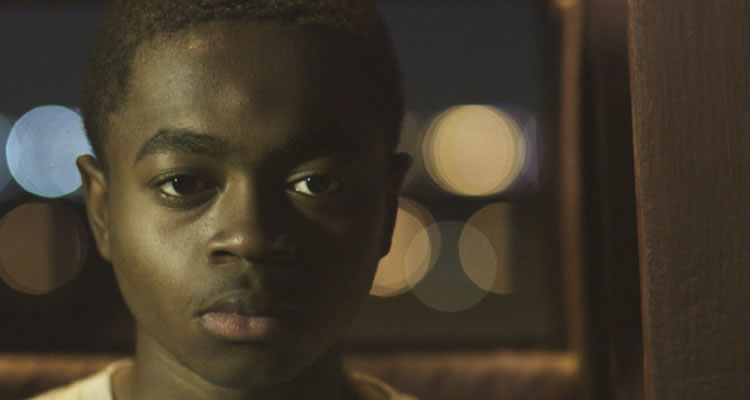THE TRANSFIGURATION (USA/TBC/97mins)
Directed by Michael O’Shea. Starring Eric Ruffin, Chloe Levine, Lloyd Kaufmann, Larry Fessenden, Dangelo Bonneli, Danny Flaherty
THE PLOT: 14 year old Milo (Eric Ruffin) lives alone with his brother; his mother having committed suicide and their father having died when Milo was young. A quiet and lonesome teenager, Milo is harbouring a dark secret; he believes himself to be a vampire.
THE VERDICT: ‘The Transfiguration’ is screening at Un Certain Regard – a sidebar of the main Cannes Competition – and is a film from first time director Michael O’Shea. The film is an examination of grief, loss and the feeling of being an outsider, through the lens of one of the most romantic and isolated mythical creatures of all time; the vampire.
Eric Ruffin is magnetic in the lead role as Milo; quiet and gentle, Milo just wants to be left alone to watch violent nature videos on YouTube until he befriends another outsider in his neighbourhood, Sophie (Chloe Levine). Ruffin makes Milo a curious character, and easily conveys the swings in his beliefs and thought processes, even as he vomits blood and walks around in the day time, the audience is engaged with the fact that he believes himself to be something other than human. As well as this, Ruffin makes Milo’s emotional detachment something for the audience to engage with, as we struggle to learn more about this strange character. Chloe Levine makes Sophie an average teenager; slightly older than Milo she is not fazed by much, even when he consistently talks about vampires she takes this on board, recommending he read her favourite vampire book; ‘Twilight’. Levine makes Sophie feel real, and like any other normal teenager who doesn’t quite understand the world around her yet. The rest of the cast features Dangelo Bonneli, Danny Flaherty and Aaron Clifton Moten, with cameos from horror filmmakers Lloyd Kaufman and Larry Fessenden.
Michael O’Shea’s screenplay deliberately leaves the truth about Milo ambiguous, leaving the audience to draw their own conclusions about the character, even as he kills and drinks blood. The story is clearly one of Milo coming to terms with the death of his mother by suicide, as is made clear through Milo’s vampire mythology – vampirism is a disease you contract; you don’t have to be bitten – and explains his emotional detachment from the world around him. The dialogue feels natural, with the teens talking about books, films and the tragedies that have marred their young lives, and how they relate to the world around them.
As director, Michael O’Shea makes a new kind of vampire film in ‘The Transfiguration’. All slow paced and slow build, the film is one that sucks – sorry! – the audience in and keeps us intrigued to find out just what is happened to this withdrawn boy who has no problem with violence and death. The performances are strong, the cinematography underlining just how alone Milo and Sophie feel in the world they cannot really relate to, and the music is used sparingly to great and chilling effect. Setting ‘The Transfiguration’ in an unstylised, natural feeling world is what makes it so special, since this teen could be someone living next door, and his struggle could well happen to any one of us if we were emotionally neglected enough.
In all, ‘The Transfiguration’ is a slow building vampire drama, that makes its greatest statements through ambiguity. The cast are strong and although the pacing is slow, this underlines the isolation the characters feel and builds to a satisfying and surprising end. Keep an eye out for the name Michael O’Shea; you will be hearing it again.
RATING: 4/5
Review by Brogen Hayes
Review by Brogen Hayes
4
satisfying &surprising


